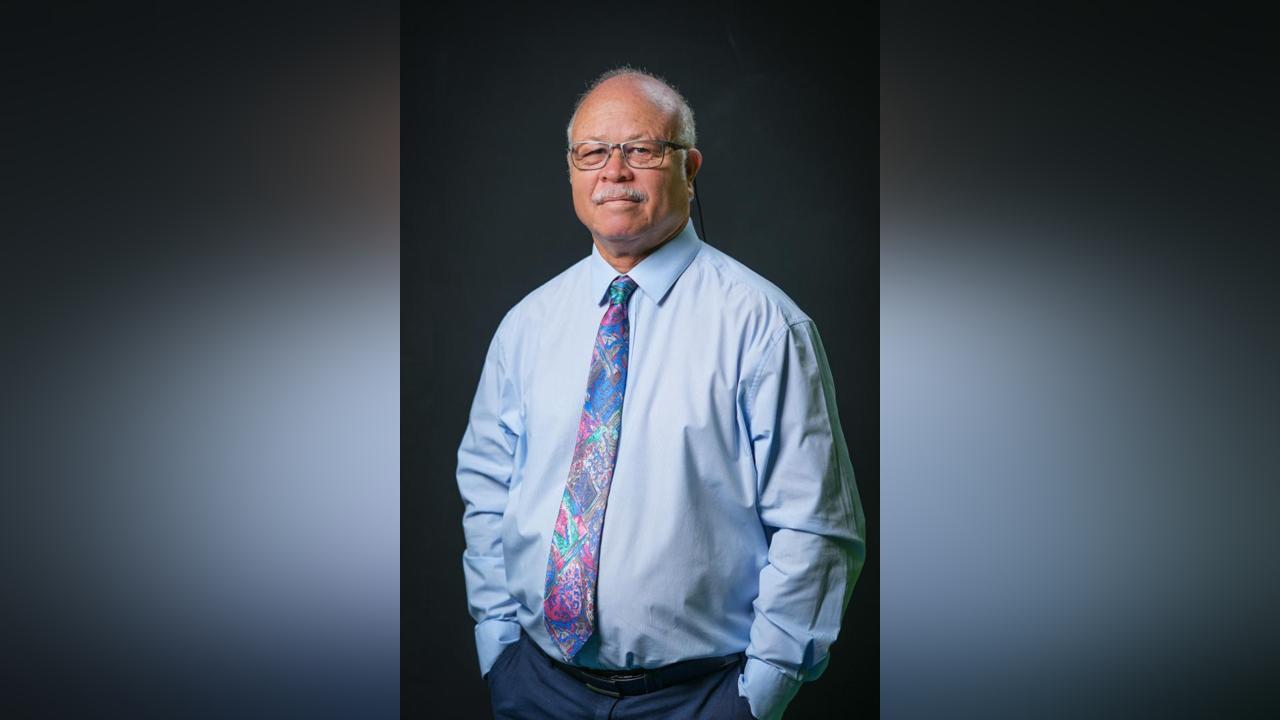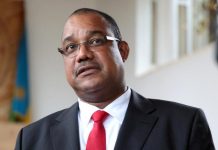
Africa-Press – Seychelles. It was on October 23, 2021 that the President of the Republic of Seychelles, Mr. Wavel Ramkalawan, officially launched the Institute for Culture, Heritage and the Seychelles (Institute of Culture) as the independent entity responsible for working on policies, as well as ensuring preservation, protection, promotion and Seychellois cultural heritage appreciation.
This institution is also responsible for promoting the right and freedom of expression, creating a favorable and acceptable environment for the development and enjoyment of Seychellois culture, as well as Creole identity values.
He also has the mandate to advise the Government on policies related to culture, heritage and Seychelles to ensure the preservation and identity of our culture. The Institute of Culture is also there to encourage artistic excellence and innovation, to maximize economic value, as well as the country’s reputation.
It also promotes inter-cultural cooperation at the national and international level in the field of culture, heritage and Seychelles.
In the maintenance that follows, the Secretary General of the institute, Mr. David André, gives more details on the mandate and operation of the National Institute for Culture, Heritage and the Seychelles.
Question: What is the purpose of the Seychelles Cultural Heritage Institute?
Mr. David André: I would like to begin by saying that this institute is a new approach that concerns the preservation, promotion of culture, land, and cultural heritage of Seychelles.
As we know, before culture was buried under a ministry, and I have to admit that there are things that went well for a certain moment, but on our own we need to recognize that there are things that have degenerate, where culture and land We don’t necessarily get the attention that it should get.
This is mainly because a Ministry is a political institution, and it is led by a Minister, who is a political figure appointed by the President. So, let us understand that political figures have political agendas that always come first.
There has come a moment in our history where we must have a new way of doing things in the way that culture is done. Politicians come and go, but culture is supposed to remain, and there is continuity.
If we are sincerely recognizing that Seychelles in its diversity is a Creole nation, we need to fully accept all that diversity that gives it that Creole identity.
It is for this reason that we call our motto ‘Guardian of our heritage’.
This institution is independent with its own law, in other words, it is a cultural reform.
There are five agencies that fall under it, including the National Council for Arts and Crafts, the Seychelles Creative Agency, the National Council for Seychelles Heritage Resources, the Seychelles Creole Academy, and finally, the Division of Acquisition, Conservation, Research and Access to Information.
The National Institute for Culture is governed by the following laws:
Act 43 for the year 2021 is the law that clearly defines the role and function of the National Institute of Culture. Several sections in this Law describe the role and function of each entity and the objectives that need to be achieved regarding the promotion, preservation and development of Seychellois language, culture and tradition.
The mandate of the National Institute allows each entity to work closely with other partners, ministries, organizations and the private sector to deliver national and international agendas and priorities, for example, Agenda 2063, which uses culture as an engine to ensure inclusive education. and also education for life. SDG goals promote Culture as a tool in sustainable economic development through the jobs that the creative and artistic industries offer.
All the sectors that are mentioned in ‘Vision 2033’ (Towards a Sustainable and Inclusive Future – Vision & National Development Strategy 2019 – 2023) treat these six pillars based on cultural elements such as shared values and principles.
Creole culture should remain the element that unites all people, or the bridge that connects us together as a people, and also connects us to the outside world, where we are actors, apart from enhancing their knowledge with the different developments in this field, also gain meaning to promote our culture throughout the world”.
Question: As for the person in charge of this institute, what can you describe as the achievements during its 2-year existence?
Mr. David André: First of all, the creation of this institute in itself is a great achievement. Another achievement that we can celebrate during this short period of existence is Moutya, which is one of our heritages that was registered as one of UNESCO’s Intangible World Heritage Sites in December 2021. What is interesting is that the world has recognized that Seychelles has a substantial heritage. , which at some point was banned. This to me is profound, because Moutya, as something that was forbidden, and associated with a certain group of people in our society, is nevertheless what is accepted by all Seychellois, importing their origin, and social status. Everyone feels connected, and there is a sense of belonging.
This is a very strong thing that can bring everyone together.
Just think, something that was forbidden, so it’s the first thing you see when you enter the President’s office, that even where the law was made to prohibit it. For me, this is something that is symbolically strong.
The sense of belonging that the Seychelles culture brings goes beyond all our differences and ways of thinking and doing.
There are also physical achievements, such as our National Library which has been repaired and will soon be reopened, and the re-development of handicrafts where artisans and handicraft products are being valued more.
We have finished and published our Creole dictionary that will help the world know more about our Creole language, at the same time helping in research to promote the Creole language. There are also Bazar Domaine activities, the renovation and re-opening of the Vye Marmit restaurant and the Roza house at the Domaine de Val des Près, and the launch of the new product ‘Grandma’s Savoire-faire’. We launched our ‘Identity Passport’, opened the Domaine Gallery and the Koko Museum, renovated and reopened the National Theatre, published 8 cultural books and produced 5 audio-visual cultural programs, launched our e-book and ‘Eplebyen’, opened a coffee at the National Museum, the launch of our national fund for culture called the ‘Seychelles National Culture Fund’, the organization of the ‘Seychelles Biennale’ which saw the participation of 44 artists, 27 foreigners and 17 Seychellois. We are continuously participating in international exhibitions where our local artists have the opportunity to participate, such as ‘Carousel Louvre’, ‘World Art Dubai’, ‘Biennale Venice’, ‘Mauritius International Art Fair’, ‘Indian Ocean Music Market’ ‘, ‘Craft Mella’ for certain people. We also managed to get two substantial donations for our projects from UNESCO and the International Fund for Culture Diversity (IFCD).
Our achievements have also come through the good synergy between our institutes and ministries and key government agencies, during the Dubai Expo 2020 event. These are just some of the substantial achievements that have taken place under the umbrella of the National Institute for Culture, Heritage and in Seychelles during its almost 2-year existence.Question: Through your experience, what would you describe as the challenges that the Institute of Culture is facing?
Mr. David André: In everything that is new, there will always be difficulties, because change is something that is inevitable in every sense. Not everyone welcomes change with the same kind of attitude. Change is something that has its positive sides, but it also has its challenges. There are times when certain people feel comfortable in an environment, and with this change, they need to re-view their ways of doing things, the way they see things, and also the way they think. As a leader, it is important that you have the ability to deal with such situations, and make your team understand the direction we are going, and how we need to work together to get the results we want. You need to have a character that allows you to make people understand you, and also understand that we are working as a team.
I always make this comparison with a symphony orchestra where there are about 80 people who play several musical instruments.
But, by the way, there is only one person who makes all these musicians play together, and that is the head musician who does not necessarily know how to play these instruments, but he wants them to be played in his entirety.
So, make sure all members of the group understand what direction they are going.
It is important then that we make all our workers understand this, so that we are all on the same line, because if not, we will not be able to convince people outside of what we are trying to accomplish.
Gradually, we are overcoming this.
We also have certain failures where it is concerned to convince other agencies outside to have this synergy with our institute to ensure that we can better assimilate our programs so that it has more impact on our population.
There is also this mentality, precisely where the cultural actors, who expect the elderly to do everything for them.
Contrary to this way of thinking, the elderly are there to give them the opportunity to do their own thing.
There are circumstances where the agency can facilitate things for them, for example the finance of a project, but in the end it is important for them to understand what their job is, and they need to make sure that they know how to organize themselves.
We are here to create space, and put couches in their sails, because we want to see the Seychellois culture flourish.
Question: In terms of multiculturalism, where do you think Creole culture is placed in our society today? Do you think there is a conflict between freedom and cultural identity?
Mr. David André: When we talk about cultural identity, it is important that we, as Seychellois, understand and are aware of what we mean by this.The young people of Seychelles today believe that everything that came out yesterday is superior, and in this way, indirectly or unconsciously, you are losing your Creole identity.
If you learn the Creole language, you cannot speak in Creole, and 90 percent is in English. This, if we are not careful, will destroy the fabric of Creole identity that we are talking about. If we look elsewhere, the people who came to Seychelles, let’s say during the last 15 to 20 years, they have a tendency to impose a way of life, a way of doing things on our society. What is serious is that we are not aware of this. We believe that this is acceptable. We are extracting some things and practices that will help to eat what is for us.
It is very important to have a good balance. The most frightening thing in all of this is that people with economic power take control of the political scene, and in doing so, take control of the cultural scene. What we are talking about today in Seychelles as a Creole people, is at risk of being erased. The example is clear, and not too far from us, we can observe this happening. This is something for us to think about very hard. We need to ask ourselves if we are really putting what is ours, our Creole identity, forward.
Question: There are initiatives to reorganize the education of culture and art in schools. In what way is the Institute for Culture, Heritage and the Seychelles involved?
Mr. David André: In the education process of a person, it is important that he has a complete education, not just the academic part, which we call cognitive. There is also an end of development where we call emotional education, aesthetics that are important to grow, and appreciate other things. It has been proven that in the education of children, it is an element that develops the personality and character of a child, and also inculcates an element of discipline in it.
There is that emotional place and sensitivity that artistic education brings to a person’s development.
At the institute, we have signed a memorandum with the Ministry of Education to re-launch the arts and culture education program in primary schools, which was there before, but which has disintegrated.
Children love these activities that give them a sense of accomplishment and pride.
It is also an opportunity to save young people from bad influences.
We work with children where the institution is always an ongoing issue. We have educational clubs such as the museum club that has been there for more than 30 years, and the heritage club that has been going on for 20 years. It is not just where the Museum, heritage, Lakademi Creol and our library section are located, but also where Creative Seychelles and NACC do many activities and the hotel continues during the holidays for children.Question: Can you reveal your future vision for this institute for the year 2024 and beyond?
Mr. David Andre: The vision of the National Institute for Culture, Heritage and the Seychelles is basically that by the end of 2025, we will become an institution that cultivates excellence in the promotion, preservation and development of Seychelles culture. Our goal is to see a Creole people who are proud of their identity, as well as to see the elements in place in society that allow people to participate, flourish and advance, share this with the world, also to develop their assets, and the ability to allow them to grow as a complete human being.
We know who we are, what we manufacture, what we have in our hands today. So, what do we do with it?
As little as we are, we have the ability to show the world that culture is the light that has the ability to bring peace, tolerance and respect to all people.
Like this quote says ‘Culture is the light of the past, in our hands today, to illuminate our future’.
Source: seychelles nation
For More News And Analysis About Seychelles Follow Africa-Press





